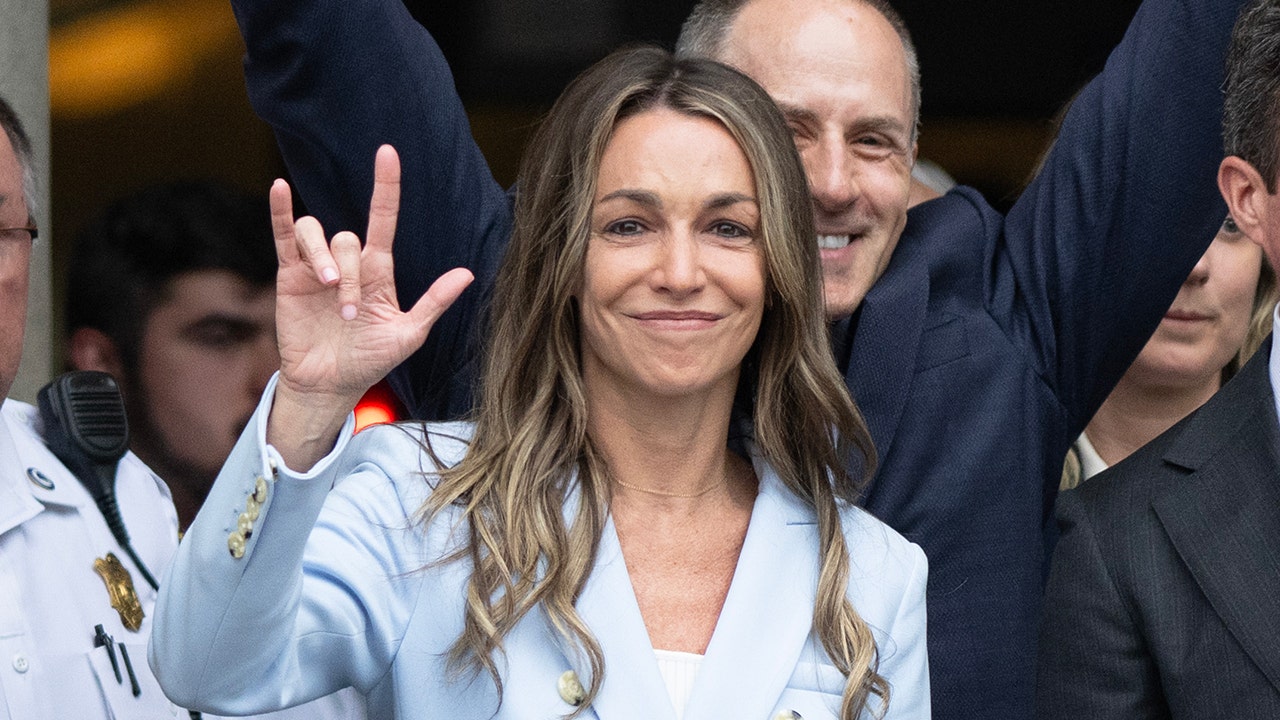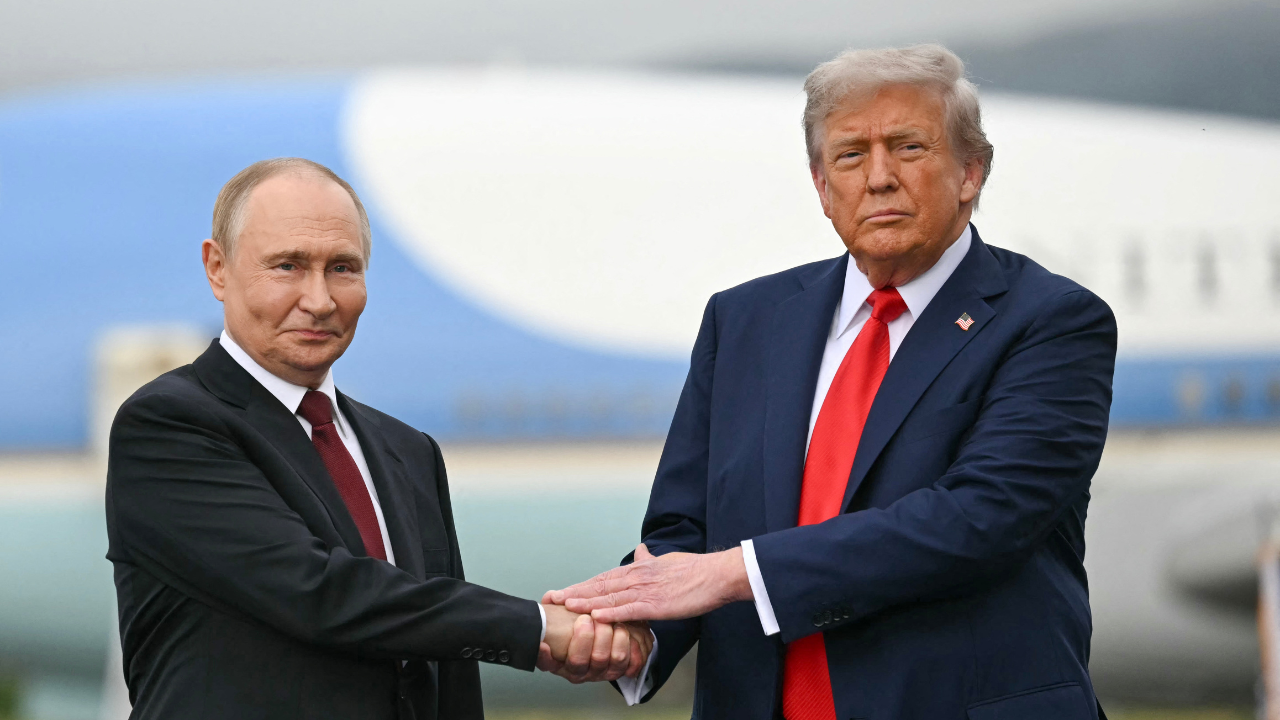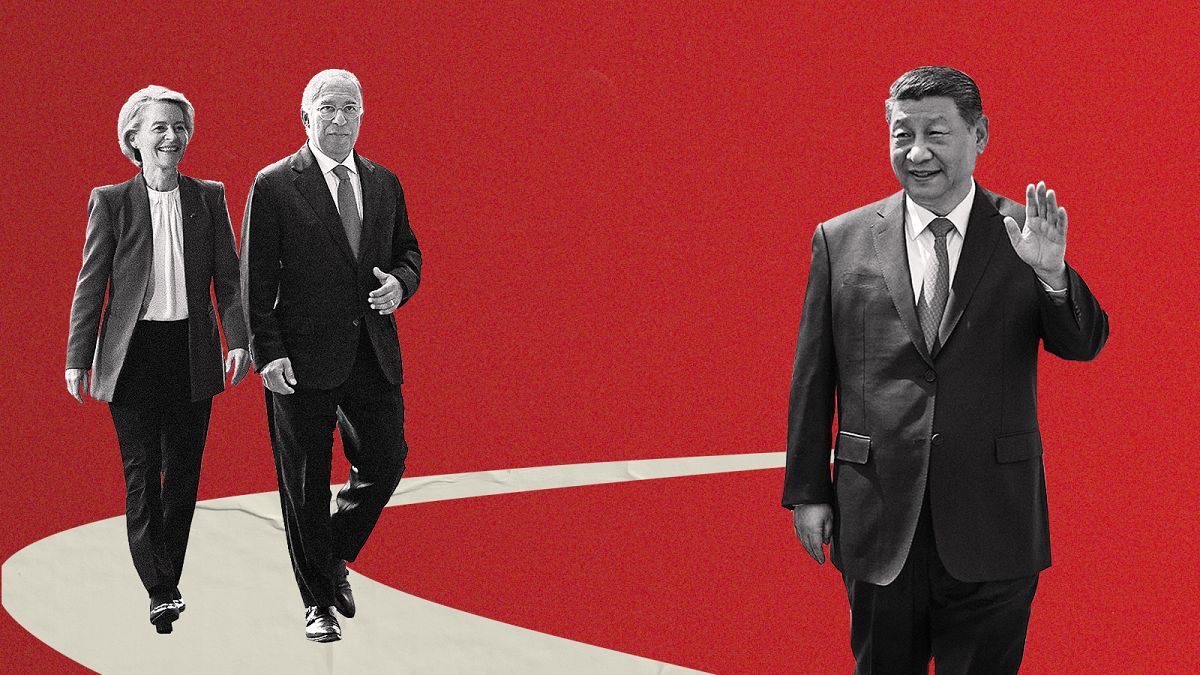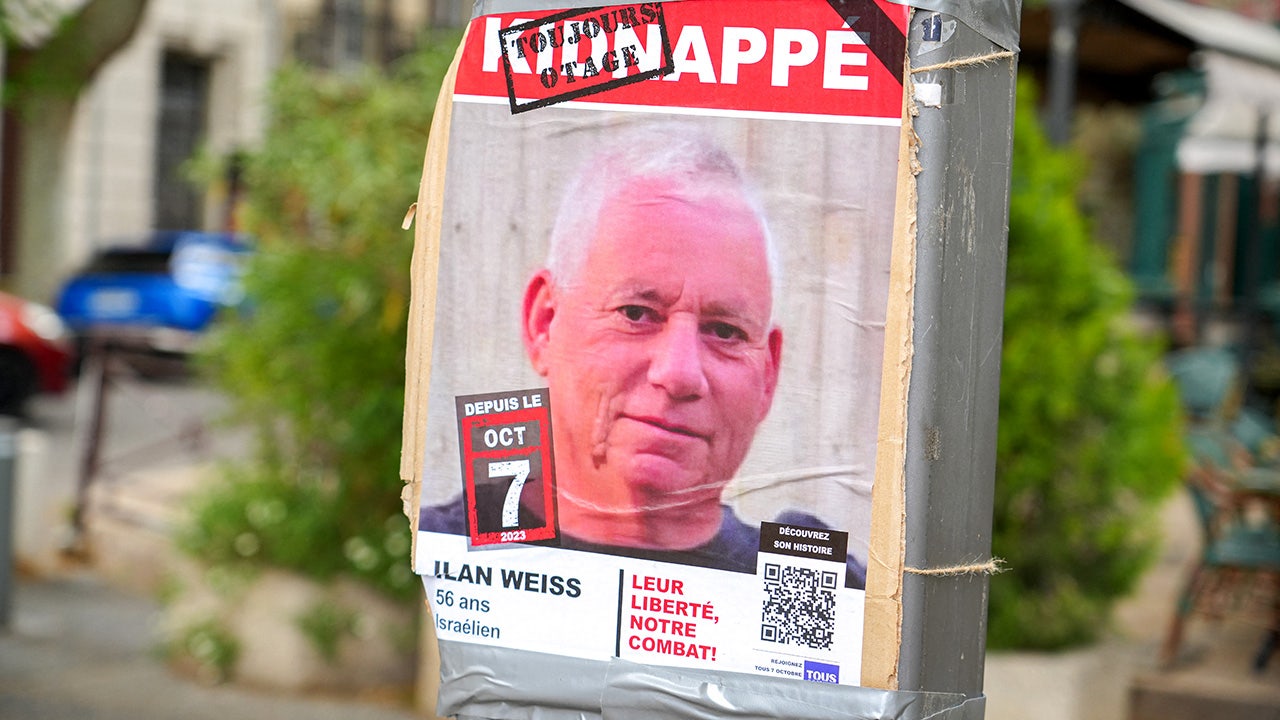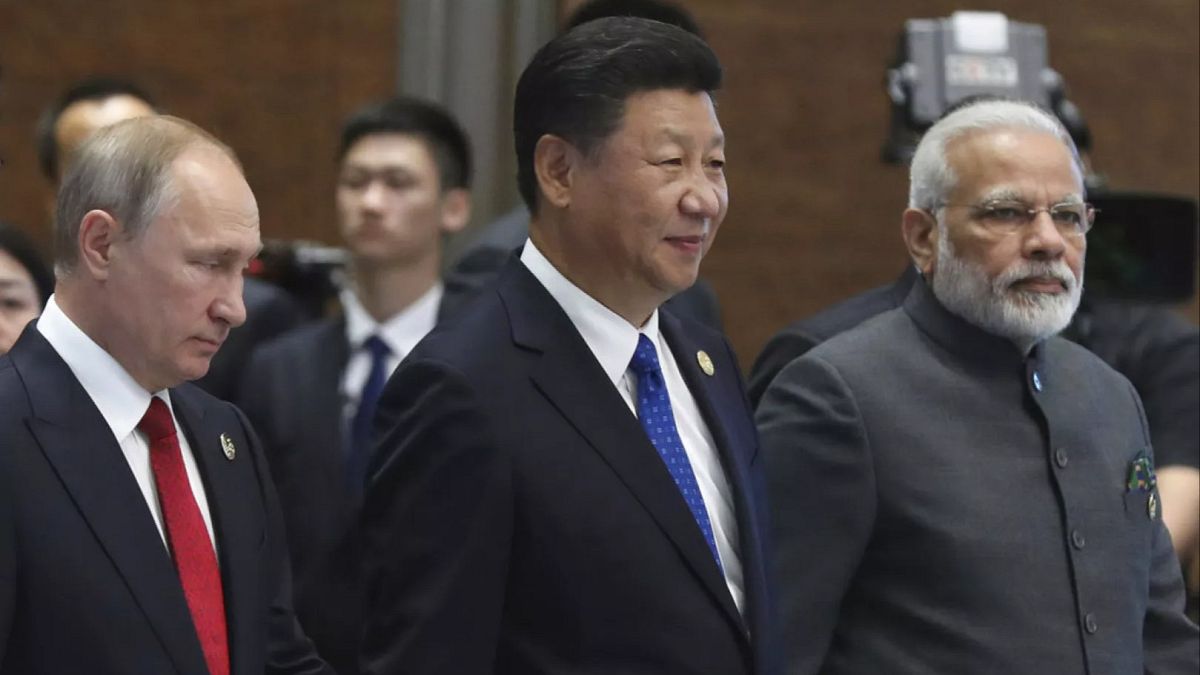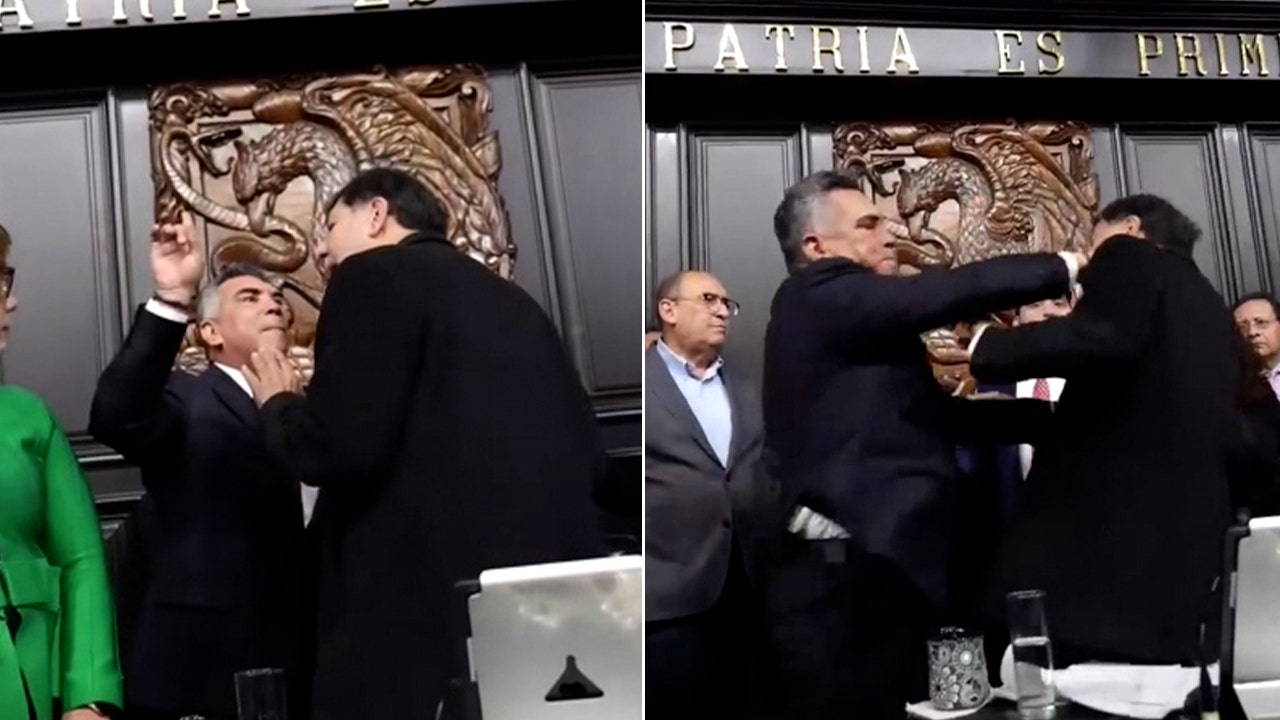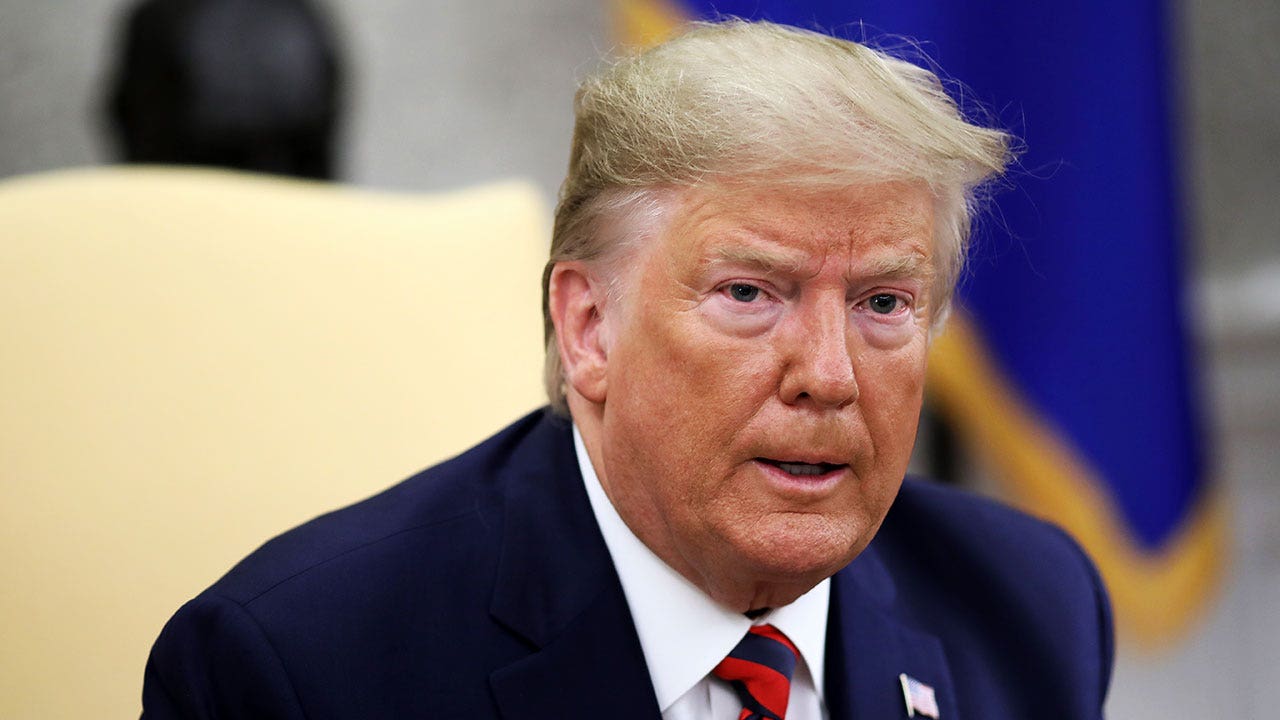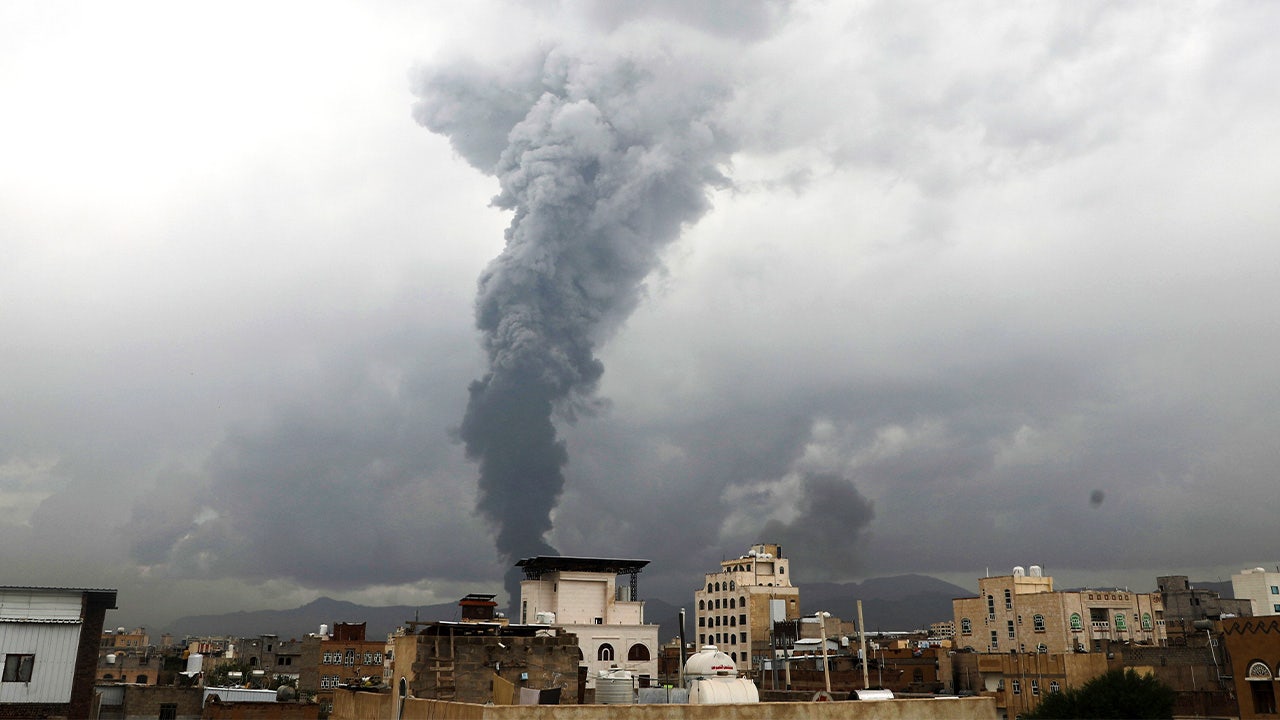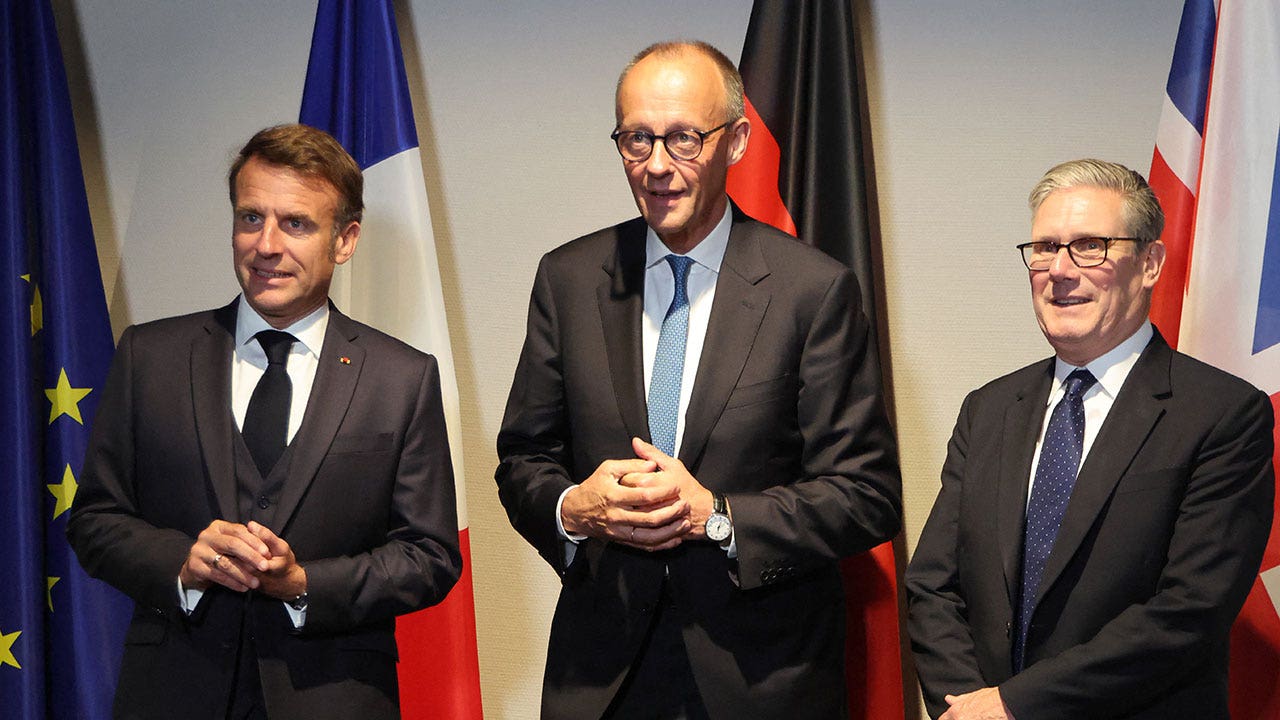ADVERTISEMENT
The summit between the European Union and China, scheduled to take place on Thursday, comes at a pivotal moment for both sides. On paper, at least.
Donald Trump’s return to the White House has upended the geopolitical chessboard, undermining age-old alliances, inflaming simmering tensions and throwing global trade into head-spinning turmoil. The chaos is such that Brussels and Beijing, long at odds over a string of disagreements and recriminations, began toying with the idea of resetting ties and reinforcing cooperation to weather the Trump-induced storm.
The fact that the summit coincided with the 50th anniversary of diplomatic relations only added to the speculation of an impending rapprochement. In May, Chinese President Xi Jinping said the anniversary offered a chance to “properly handle frictions and differences, and open up a brighter future for China-EU relations”.
Ursula von der Leyen, the president of the European Commission, and António Costa, the president of the European Council, played to the prevailing narrative, committing themselves to “deepening our partnership with China”.
But then the tide shifted and the tone soured.
Beijing’s decision to restrict exports of rare earths, the metallic elements that are crucial for manufacturing advanced technologies, caused widespread alarm across European industry and was rebuked by von der Leyen.
“China is using this quasi-monopoly not only as a bargaining chip, but also weaponising it to undermine competitors in key industries,” she said at the G7 summit in June.
“We all witnessed the cost and consequences of China’s coercion.”
Beijing immediately hit back at the Commission chief, calling her speech “baseless” and “biased”, but offered an olive branch to build a “win-win” partnership.
The damage was done, however. By the time von der Leyen and Costa meet with Xi on Thursday, there are scant expectations for any concrete solution.
Hopes are so low for the meeting that officials in Brussels point to the fact of the one-day summit in Beijing happening at all as an achievement. (Under protocol rules, the summit was supposed to happen on EU soil, as both sides take turns as hosts.)
“For the EU, the deliverable is a substantive, open and direct conversation between the two of us on every aspect of our relationship,” a senior official said last week, speaking on condition of anonymity ahead of the occasion.
A second senior official described the summit as a “unique opportunity” to communicate the bloc’s concerns with the view of obtaining results “in the short term”.
“We go there with the expectation that the Chinese will first understand our concerns and, second, take concrete actions to meet our concerns,” the official said.
“Otherwise, we will have to defend our own interests.”
No-limits friction
There are certainly no shortage of issues to be resolved, with myriad disputes straining EU-China relations since the COVID-19 pandemic.
Among the extensive list of friction points, which range from cyberattacks against state agencies to human rights violations, two stand out: Beijing’s “no-limits” partnership with Moscow and the trade imbalances caused by industrial overcapacity.
For the past three years, Europeans have been aghast at seeing a permanent member of the United Nations Security Council stand firmly by the side of an aggressor nation in breach of the core principles of the UN Charter.
Brussels has repeatedly accused China of acting as the “key enabler” behind Russia’s full-scale invasion of Ukraine and supplying 80% of the components that the Kremlin uses to manufacture weapons. Several Chinese entities have been targeted by the bloc for enabling the circumvention of economic sanctions.
Last week, two Chinese banks were blacklisted, triggering Beijing’s fury.
“We urge the EU to stop harming the lawful interests of Chinese companies without any factual basis,” said Guo Jiakun, spokesperson of the Chinese Foreign Ministry.
“China will do what is necessary to firmly safeguard the legitimate and lawful rights and interests of Chinese companies,” he added.
Von der Leyen and Costa are set to raise Ukraine during their face-to-face meeting with Xi, however unlikely their pleas are to be heard. The Chinese leader has shown no signs of wanting to disengage from Russia, attending Vladimir Putin’s Victory Day parade earlier this year as guest of honour.
“We can say that China is de facto enabling Russia’s war economy. We cannot accept this,” von der Leyen said earlier this month. “How China continues to interact with Putin’s war will be a determining factor for EU-China relations going forward.”
An ‘unsustainable’ relation
On trade, the stakes are equally high – and the expectations, equally low.
The bloc has grown increasingly anxious about its ballooning deficit with China, which last year surpassed €300 billion in goods. The figure risks expanding in 2025 due to sluggish demand from Chinese consumers and Trump’s prohibitively high tariffs.
The European Commission has set up a special task force to monitor the potential diversion of Chinese products from the US to the EU market. The executive is also keeping a close eye on Beijing’s lavish use of subsidies, which have been blamed for artificially lowering prices to the detriment of European competitors.
“The present situation is unsustainable. We need rebalancing,” said a senior official.
The dispute came to a boil in October when the EU slapped steep duties on China-made electric vehicles (EVs) to offset the effects of state aid. Decrying the measure as a “naked act of protectionism”, Beijing responded with probes into EU-made brandy, pork and dairy, which Brussels then denounced as unfair and unjustified.
Another recurring grievance among Europeans is the regulatory barriers that China has erected to encroach upon the private sector and give preference to domestic companies. The row recently led the Commission to exclude Chinese providers of medical devices from European public tenders. Beijing retaliated with a similar ban.
Initially, the July summit was considered the stage to reach a common understanding on these open fronts and announce tentative solutions to some of them. While the disputes will still be addressed as part of the busy agenda, the rise in tensions indicates they will remain unresolved as neither side believes the other is ready to relent.
The only deliverable that von der Leyen and Costa can reasonably hope for is a joint declaration on climate action ahead of the UN climate conference later this year. Substantial concessions in other fields are improbable, warns Alicja Bachulska, a policy fellow at the European Council on Foreign Relations (ECFR).
“Beijing appears confident that time is on its side,” Bachulska said.
“China’s strategic calculus, dominated by its rivalry with the US, currently assesses the EU as too internally fractured to exert meaningful pressure or leverage on Beijing, thereby closing any perceived ‘window of opportunity’ for a significant reset in relations, despite US actions.”
Read the full article here



